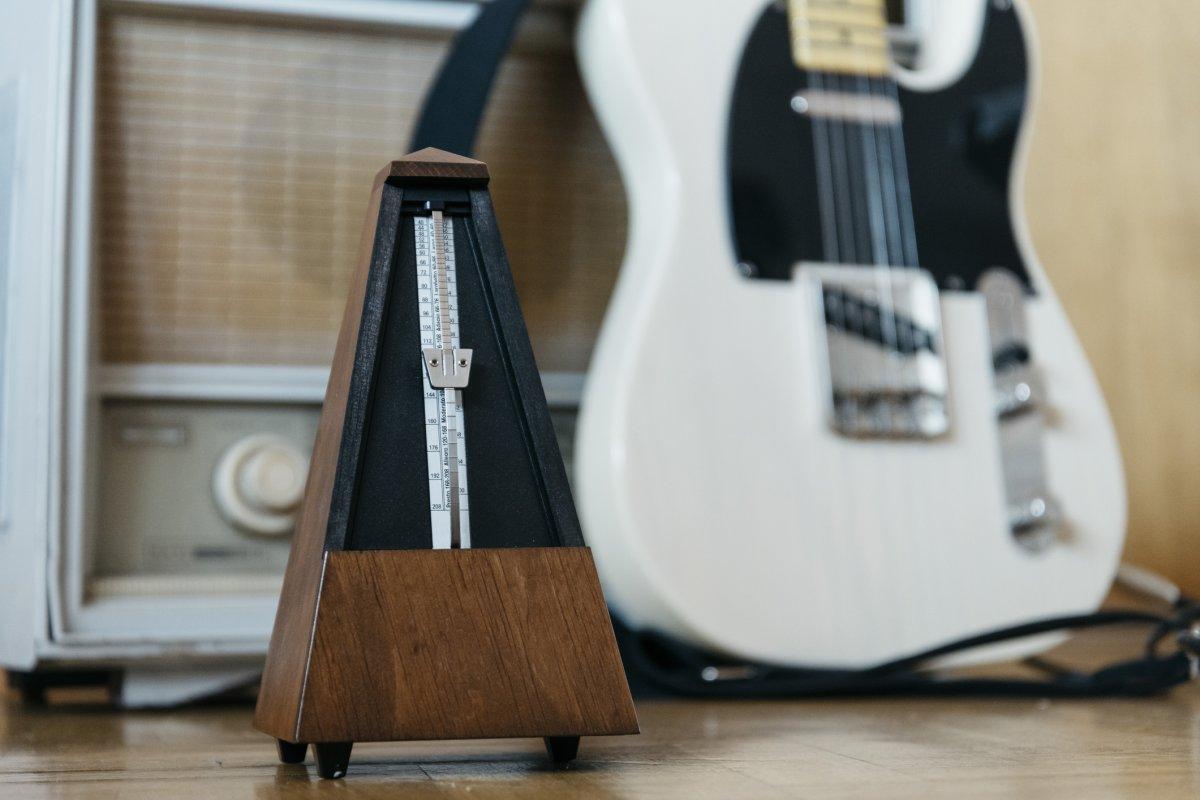The Black Keys’ drummer Patrick Carney told Rolling Stone magazine recently that Nickelback is killing off the rock genre. Agree? Disagree?
There will always be rivalries in the music industry, but whomever you side with, one thing is for certain: they all started out as complete beginners at one point. So if you’re just a beginner now, it will be up to you to determine who you’ll want to end up like.
But first, you’ll need some important tools to help learn guitar. Take a look at this great list from ultimate-guitar.com for the most essential tools to help learn for beginner guitar players:
Essential tool 1: Metronome
A metronome is crucial to developing many skills. Most players already know this, but if you haven’t used one yet then get your hands on one. There are a few different types you can get. You can get a software version (normally for free) for your computer or iPhone (most phones can get one). The second type is the physical pendulum type you see with a metal arm ticking back and forth. The third type is a digital version. This type could be as basic as providing a simple click or as complicated as generating a stack of rhythms and loops.
Things you can do with a metronome:
• Develop your rhythm abilities
• Practice fast/complicated licks or solos
• Improve your speed picking/playing
• Master techniques such as tapping or sweep picking
• Develop your strumming patterns
Essential tool 2: Rhythm generator/drum looper
There are many different names and labels for this tool. Basically, it is a little box where you can choose a style of music (such as blues, rock, metal, swing, etc.) and it will play a drum beat that fits that style, at a tempo you choose. The better ones will also allow you to choose a key and it will play a progression in that key with the drums for you to jam over. They normally have hundreds of different options and you have full control over how everything sounds. Instead of buying a digital metronome, if it’s in your budget you may want to get one of these instead. All of them will have a metronome option to give you a simple click.
Here are some things you could try with a rhythm generator:
• Learn how to jam in a style you have never tried before
• Write song ideas and riffs that fit with different drums patterns
• Practice scales and learn what sound or ‘flavor’ they give your playing
Essential tool 3: Flash cards, chord charts, and chord dictionaries
These three tools will all help you learn a range of different chords in different ways. Chord charts are normally a poster or page with a selection of chord diagrams. You can buy ones large enough to stick on your wall or they sometimes come with books. Chord dictionaries are just like they sound – a dictionary full of chords. Chord dictionaries can contain up to a couple hundred different chords. Flash cards are like a pack of playing cards where each card displays a chord diagram and other information.
Using these tools to help you learn guitar will aid in your chord devleopment. The more chords you know, the more options you have. More choices of chords will give your songs more interesting sounds and will have a big impact on your songwriting or improvising. The average beginner will know about 10 basic open chords, whereas the expert guitarist will know over a hundred different options all over the neck. Don’t underestimate how important it is to learn more chords! Even expert players continue to learn new chord shapes.
Here are some things you can do using chord flash cards, dictionaries and charts:
• Learn more chords
• Write interesting chord progressions and songs
• Improve chord progressions by finding more interesting chords
• Learn the notes behind the chord types (eg: major, minor, seventh, etc)
• Understand music with chord theory
Image courtesy of http://fretterverse.com/2010/04/20/practice-with-a-metronome/
Suzy S.

